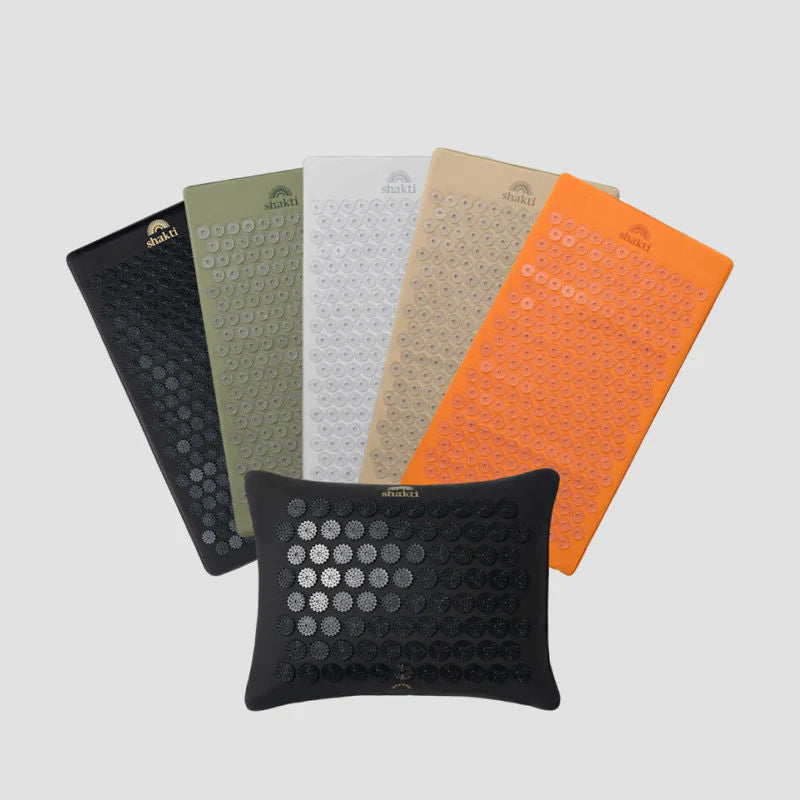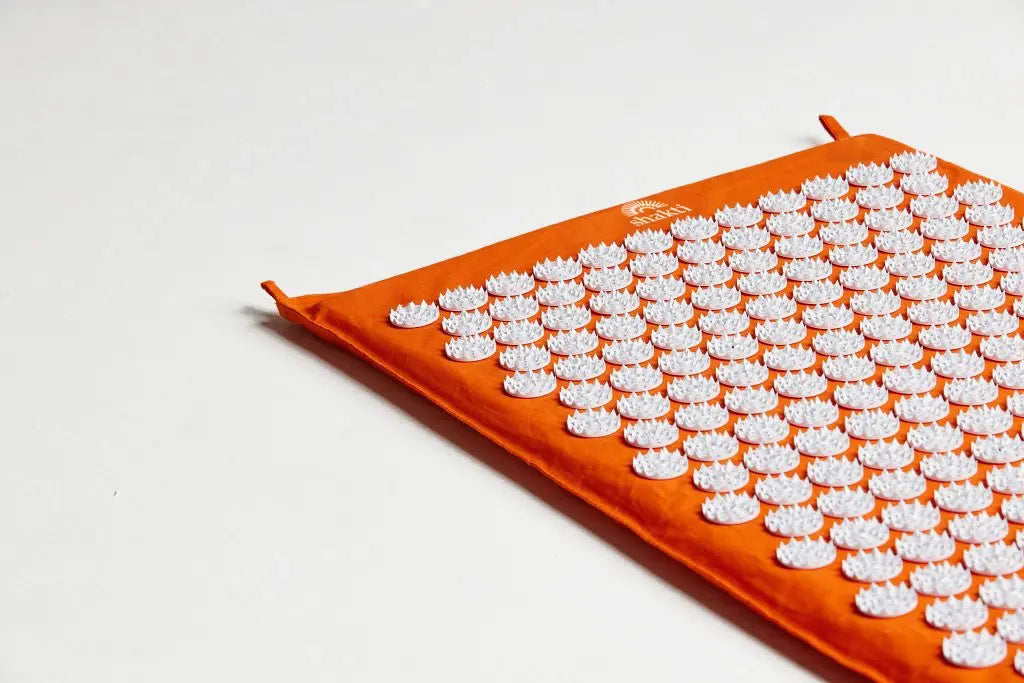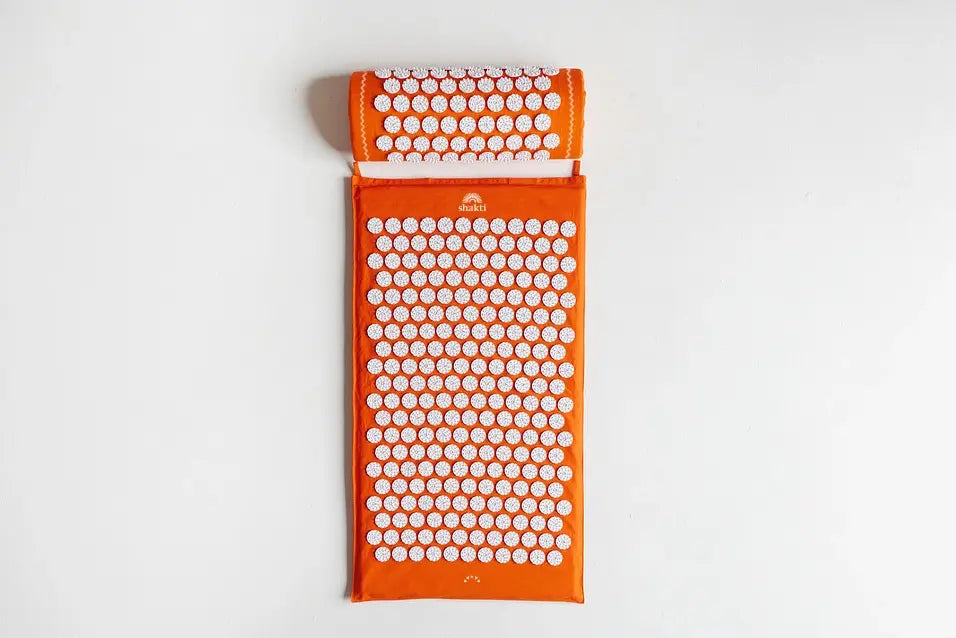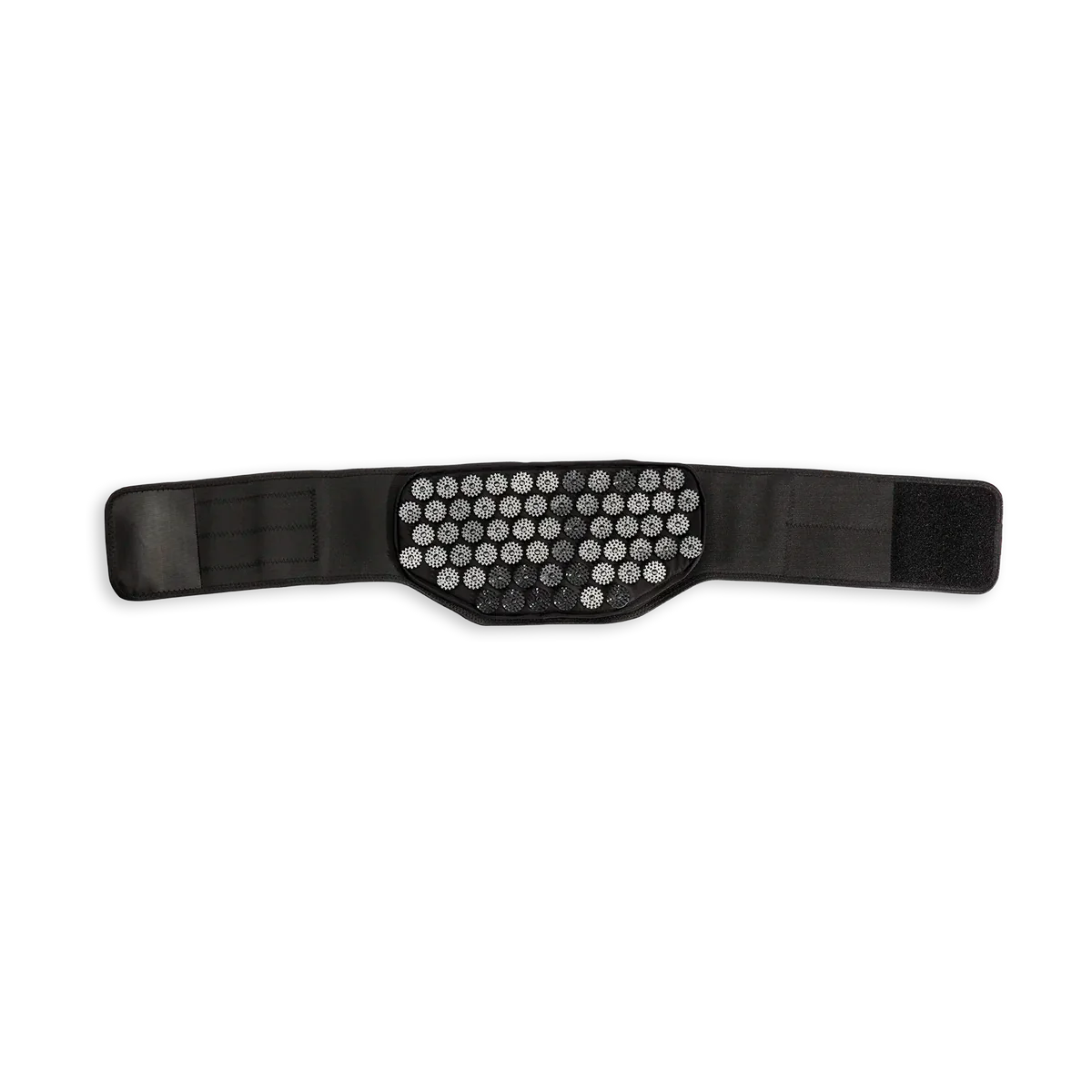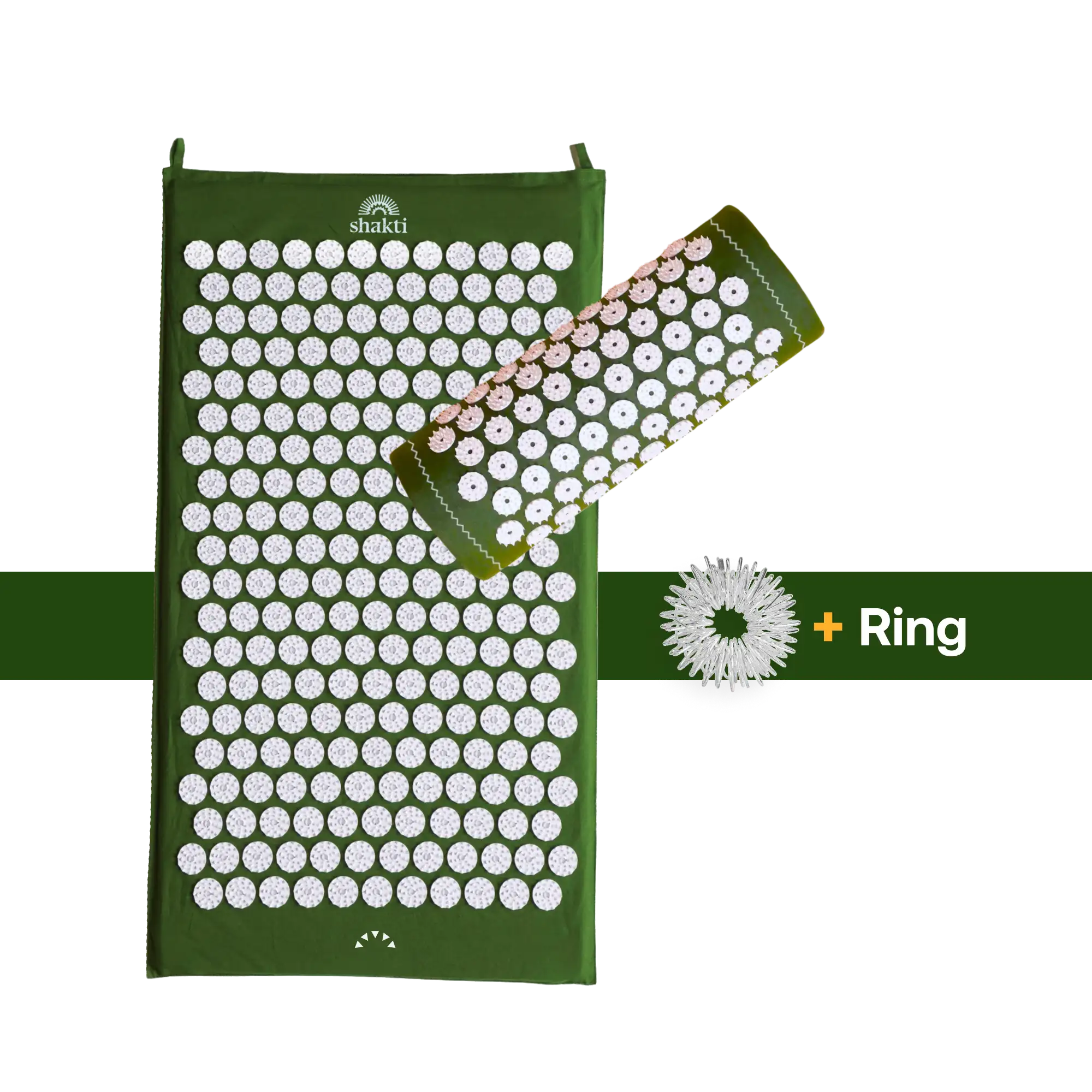- Constipation - a widespread digestive disorder
- Do these constipation symptoms sound familiar?
- Good question: Constipation - when does it become dangerous?
- Causes of constipation
- Which treatment really helps with constipation?
- Our 5 tips for your everyday life:
- How to solve your acute constipation
- The right diet for constipation & how to avoid it
- How acupressure can help with constipation
A healthy everyday life starts with a healthy digestive system. But for many of us, the issue of constipation is a constant companion that is not only physically but also emotionally stressful. The feeling of discomfort that builds up over days can affect more than just our physical health. In this article, we will take an in-depth look at constipation - a common digestive disorder that affects millions of people around the world. We'll look in detail at the symptoms, which can often start subtly and then gradually worsen. And, of course, we will also take a look at the causes in order to understand the development of constipation and how to prevent it.
For existing complaints, we will show you various treatment options - from simple dietary changes to gentle techniques such as acupressure. We will have achieved our goal together if you can actively improve your digestion and thus reclaim your life full of vitality and well-being. Let's get started right away!
Constipation - a widespread digestive disorder
Let's start with the basics: With a constipation is when the normal course of the digestive process is impaired. It usually occurs when the bowel cannot move food and waste products efficiently because they are too hard or too dry. This can have various causes, including a a low-fiber diet, dehydration or lack of exercise. The resulting sometimes very delayed and difficult emptying of the bowel can lead to symptoms such as abdominal pain, bloating and a very uncomfortable feeling during and after bowel movements. It is therefore important to take these digestive problems seriously and take the appropriate measures to alleviate the symptoms. After all, constipation is not an inevitable fate, but a problem that can be tackled and solved. There are various ways to bring your digestion back into balance. For example, by changing your diet, drinking more water and incorporating regular exercise into your daily routine, you can improve your bowel health. Of course, we'll go into this in more detail in a moment.
Good to know: an overview of other digestive problems
For the sake of completeness, we would like to briefly mention other possible digestive disorders are discussed. These include diarrhea, which can be triggered by infections, food intolerances or irritable bowel syndrome and manifests itself in frequent, sometimes almost watery bowel movements. Heartburn and acid regurgitation are symptoms of reflux, where stomach acid flows back into the oesophagus and causes a burning sensation in the chest area. Stomach pain, bloating and nausea can of course also indicate numerous other problems such as gastritis or gallstones and should therefore always be monitored closely. Remember: Digestion is a very complex process that can be influenced by many factors (positive and negative). Our tip: Keep a food and digestion diary to document all peculiarities and changes. This will give you a better overview and you may be able to identify correlations and work on the causes yourself. If there is no improvement, these notes will also help your doctor enormously when taking your medical history.
Do these constipation symptoms sound familiar?
Let's take a look at the symptoms of constipation in more detail. These can range from mild discomfort to severe discomfort. A common symptom is a reduced frequency of bowel movements, where you may have fewer than three bowel movements per week. Your bowel movements themselves can be very hard and dry. This makes it very difficult to pass through your bowel, which can cause pain or discomfort. This can also make going to the toilet very uncomfortable and you may not feel completely relieved afterwards. The following symptoms usually also occur:
-
Abdominal pain or cramps: These can vary - from mild, occasional discomfort to severe and constant pain in the abdominal area.
-
Flatulence and gas formation: Constipation can lead to increased gas formation in the intestines, which then manifests itself as bloating and a bloated feeling in the abdomen.
-
Straining during bowel movements: You may have to push hard or strain extremely hard, which can lead to increased strain in the abdominal area. As a result, it is also possible that in some cases constipation can cause back pain.
-
Rectal bleeding: Pushing hard during bowel movements can cause small tears in the skin around the anus, which can lead to bright red blood in the stool or on the toilet paper.
-
Not complete relief: Even after a bowel movement, you may feel that your bowels have not been completely emptied, which of course results in lingering discomfort.
-
Nausea and loss of appetite: In addition to a poor general condition, nausea and loss of appetite can also occur.
These symptoms significantly affect your everyday life and naturally make various situations more difficult. For example, abdominal pain or bloating can affect your concentration at work or make it uncomfortable to participate in social activities. Constantly worrying about the next toilet session can also lead to increasing anxiety or real stress, which can further reduce your quality of life. So if you notice persistent or recurring symptoms, you should take action.
Good question: Constipation - when does it become dangerous?
You may have already asked yourself this question when you had your own complaints: How long does constipation actually last? After how many days of constipation do I need to see a doctor? Unfortunately, there is no clear answer to this question, as the duration can vary from person to person and depends on various factors, including the underlying causes, lifestyle and health history. For some people, indigestion can be a temporary problem that resolves itself within a few days and with a little help (which we'll discuss below). Of course, you're still wondering after how many days of constipation you need to see a doctor. In general, you should seek medical help if it lasts longer than two weeks or if you have persistent and severe pain, rectal bleeding or other alarming symptoms. In addition, you should seek medical help if your bowel movement problems are accompanied by other symptoms, such as unexplained weight loss. A doctor can then help you identify the underlying causes and develop an appropriate treatment plan to relieve your symptoms and improve your digestion. It's important to take constipation seriously to avoid potential complications and protect your overall health. Researching the causes is, of course, an essential point that we would now like to address.

Causes of constipation
Many factors can interfere with the normal course of your digestive process and thus lead to constipation constipation. This can range from simple dietary and lifestyle habits to complex medical problems. When investigating the cause, it is also important to note that digestive problems are often caused by a combination of several factors. Some of the most common causes of constipation are:
1. low-fiber diet: A diet that is low in fiber can promote constipation, as fiber helps regulate bowel movements and stimulate bowel motility. An insufficient intake of fiber can therefore lead to a slower passage of stool through the bowel.
2. dehydration: Insufficient fluid intake can cause stools to become hard and dry, which can make them difficult to pass through the bowel and cause problems. It is therefore important that you drink enough water to support your digestion and improve your stool consistency.
3. lack of exercise: An inactive lifestyle can result in slower bowel movements, making it more difficult to empty the bowels. Regular physical activity can help to improve bowel function and prevent digestive problems.
4. side effects of medication: Certain medications, for example painkillers, antidepressants or iron supplements, can have constipation as a side effect, as they slow down bowel movements or make bowel movements more difficult.
5. hormonal changes: Fluctuations in hormone levels, such as those that occur during pregnancy, menstruation or the menopause, can affect bowel movements. For example, the hormone progesterone during pregnancy can slow down bowel movements and cause discomfort.
6. irritable bowel syndrome (IBS): IBS is a common disorder of the digestive tract that can lead to abdominal pain, bloating, diarrhea or constipation. This occurs mainly in IBS-C, a form of IBS characterized by slow intestinal transit.
7. neurological diseases: Certain neurological diseases such as Parkinson's disease or multiple sclerosis can also affect the normal function of the bowel and cause constipation.
8. structural problems in the bowel: Structural abnormalities or diseases of the bowel, such as intestinal obstructions or narrowing, can also block the passage of stool and cause constipation.
Which treatment really helps with constipation?
Have you been able to identify (at least) one cause? Then the question naturally arises: What helps against constipation? Depending on the cause, you have different treatment options. We would first like to give you a general overview and then go into the most important points in more detail. A change in diet can help to improve digestion. This includes increasing your fiber intake by eating whole grain products, fruit, vegetables, legumes and nuts. Adequate fluid intake, preferably water, also facilitates bowel movements. It is also important to reduce the consumption of processed foods and fatty foods, as they can slow down digestion. Regular meals and the inclusion of foods with probiotic properties, such as yogurt, promote intestinal health.
Physical activity also plays an important role in prevention. Regular exercise such as walking, cycling, yoga or even a few minutes on the acupressure mat can stimulate intestinal activity. Integrating exercise into your daily routine, for example by taking the stairs instead of the elevator or going for short walks after meals, also aids digestion. Also lifestyle changes can also be helpful in preventing digestive problems. This includes establishing regular toilet times to get the bowels used to a fixed schedule. A relaxed and stress-free environment when going to the toilet also makes bowel movements easier. It is also important to avoid holding back bowel movements when the urge arises.
If necessary, it is also possible to medicinal treatments can also be used to provide relief. These include over-the-counter laxatives such as lactose, psyllium or bisacodyl to ease bowel movements. In more severe cases, a doctor may prescribe medications such as osmotics, stimulants or stool softeners. Naturopathic approaches such as acupressure can also help to promote bowel movements. Acupressure is a technique that stimulates specific points on the body to promote bowel activity. The use of herbal remedies such as senna leaf, aloe vera or castor oil can also be helpful.
Our 5 tips for your everyday life:
-
Eating oatmeal for breakfast every day to increase your fiber intake.
-
Establishing a regular toilet routine by spending a few minutes on the toilet every morning after getting up.
-
The application of pressure to certain acupressure pointson the wrist, for example, to aid digestion.
-
A walk after dinner to stimulate bowel movement.
-
Avoiding hard-to-digest foods such as pizza or greasy snacks before going to bed.
By combining these treatment options and integrating practical tips into everyday life, constipation can be effectively treated and, above all, prevented. However, you should always be aware that not all measures are equally effective for everyone and that it may take time and patience to find the best strategy for your individual situation. If constipation symptoms persist or are severe, it is advisable to seek medical advice in order to receive appropriate treatment.

How to solve your acute constipation
In the case of acute difficulties with bowel movements, various treatment options can be used to alleviate the symptoms, for example Laxatives for constipation. They make bowel movements easier and alleviate the symptoms. Over-the-counter laxatives such as lactose, bisacodyl or senna leaves can help to promote bowel movements. Osmotic laxatives such as polyethylene glycol (PEG) can also be used to draw water into the bowel and soften the stool. Stimulants such as sennosides or bisacodyl stimulate bowel movements and thus promote bowel movements. Stool softeners can also be helpful by softening the stool and making it easier to pass. In addition to laxatives, there are also constipation medicationthat can be used. These include the short-term use of medications such as magnesium hydroxide or magnesium citrate to empty the bowel. In addition to laxatives and medication, there are also various home remedies for constipationthat can be used to relieve constipation. Natural home remedies such as warm water with lemon in the morning or drinking prune juice can stimulate bowel activity and promote bowel movements. A warm bath can help to relax the abdominal muscles and stimulate bowel activity.
Our conclusion for you: prevention is important!
Acute constipation is often a sign that something is wrong with your diet, your lifestyle or your health in general. So you should definitely not look away here. Instead of focusing exclusively on treating acute symptoms, it is definitely advisable to take preventative measures. The best way to do this is to eat a a high-fiber diet, sufficient fluid intake and regular physical activity. pay attention. By maintaining a healthy lifestyle, many cases of indigestion can be avoided, leading to greater well-being and generally stable health.
The right diet for constipation & how to avoid it
So let's take a closer look at how you can prevent constipation. A balanced diet plays a crucial role in this. Incorporating high-fiber foods into your diet, adequate hydration and a few other healthy eating habits can effectively prevent constipation. Remember that a healthy diet not only helps to prevent bowel movement problems, but also contributes to an overall sense of well-being and vitality. Be open to making changes in your everyday life - we have put together some tips and examples of how you can adapt your diet to aid digestion.
Watch what you eat ...
Foods rich in fiber play a crucial role in promoting healthy digestion. A diet high in fiber helps to ease bowel movements and promote bowel health. Fiber-rich foods include whole grain products such as whole grain bread, whole grain pasta, oatmeal and brown rice. These products contain both soluble and insoluble fiber, which aids digestion and supports bowel function. In addition to wholegrain products, fresh fruit and vegetables are also an excellent source of fiber. Apples, pears, berries, oranges and plums are rich in fiber and can help regulate bowel movements. Vegetables such as broccoli, spinach, carrots, kale and sweet potatoes also contain a variety of fiber that can aid digestion. Legumes such as beans, lentils, chickpeas and peas are also rich in fiber and can help improve gut health. Give it a try and add a little variety to your diet - your taste buds will be happy too!
... and how you eat it:
In addition to fiber-rich foods sufficient fluid intake is also important to aid digestion and facilitate bowel movements. Drink enough water throughout the day to keep the body hydrated and aid digestion. If you get bored of water, you can also enjoy unsweetened teas. Our tip: In summer, you can pour hot water over fresh mint, leave to cool and then garnish with a few ice cubes and lemon zest. Delicious! On the other hand, you should reduce your consumption of caffeinated drinks such as coffee or carbonated drinks, as these have a dehydrating effect and can impair digestion. Healthy eating habits also play an important role in prevention. It is advisable to eat regularly and at set times to get your bowels used to a fixed rhythm. Avoid eating quickly and take time to chew your food thoroughly. This saves your intestines work. In addition to fiber intake and adequate hydration, probiotic foods such as yogurt, kefir or fermented vegetables can help promote gut health and aid digestion.
How acupressure can help with constipation
Now that we know which food is preferable for constipation and how to prevent it, let's look at another treatment option: Let's counteract constipation with acupressure. Acupressure is a traditional Chinese technique that stimulates certain points on the body to regulate the flow of energy and activate the body's self-healing powers. For constipation, acupressure can help to promote bowel activity and improve digestion by stimulating specific acupuncture points associated with the digestive system. A popular method of performing acupressure is the use of an acupressure mat. It is equipped with thousands of small plastic spikes that stimulate the acupressure points when in direct contact with the skin. Regular use of an acupressure mat can relieve tension, improve circulation and promote general well-being.
Get on the mat & feel good!
And how do you use an acupressure mat correctly? Quite simply: lie on it and enjoy. The pressure of the small spikes stimulates the acupressure points and can help to improve digestion. Also interesting: acupressure can not only be helpful for digestive problems, but can also increase your general relaxation. Regular use can reduce stress, improve sleep and strengthen physical and mental health. Our tip: For beginners, there are acupressure mats with lots of points so that the body weight is distributed particularly gently. Advanced users can manage with fewer tips and therefore enjoy a somewhat stronger effect. This way you can gradually increase your level. We wish you a good rest!


